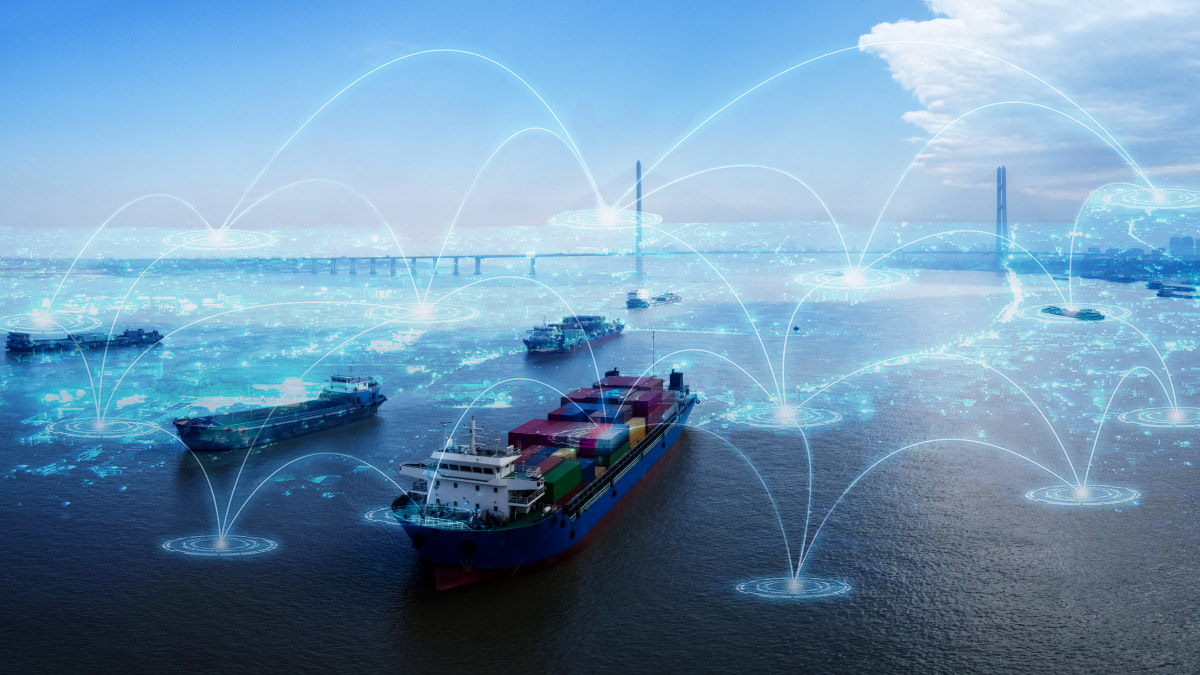In the highly interconnected world of global trade, container ports play a critical role in facilitating the movement of goods. Efficient operations at these ports are essential for maintaining the smooth flow of international commerce. Central to this efficiency is connectivity, which underpins the digital platforms and data sharing mechanisms that modern ports rely on. This article explores the crucial role of connectivity in enhancing digital platforms and data sharing for container ports.
The Role of Connectivity in Modern Container Ports
Connectivity is fundamental to the integration and optimisation of digital platforms and data sharing systems within container ports. It ensures that all stakeholders, systems, and devices are interconnected, enabling seamless communication and coordination.
Integrated Digital Platforms
Digital platforms are the backbone of modern port operations, providing a unified interface for various stakeholders, including shipping lines, terminal operators, customs authorities, and logistics providers. These platforms facilitate the efficient management of port activities, from vessel scheduling to cargo handling and customs clearance. Connectivity ensures that these digital platforms are integrated, allowing for real-time data exchange and streamlined operations.
Real-time Data Sharing
Real-time data sharing is essential for effective decision-making and operational efficiency. Connectivity enables the continuous exchange of information between different systems and stakeholders. This includes data on vessel arrival times, cargo status, equipment availability, and environmental conditions. Real-time data sharing helps in anticipating and mitigating potential disruptions, enhancing the overall efficiency of port operations.
Technological Innovations Enabled by Connectivity
Connectivity drives technological advancements that are transforming container port operations. These innovations leverage digital platforms and data sharing to enhance efficiency, security, and sustainability.
Internet of Things (IoT)
IoT technology connects a vast network of sensors and devices across the port, providing critical data on various aspects of port operations. IoT-enabled devices monitor container conditions, track equipment performance, and gather environmental data. This connectivity facilitates predictive maintenance, improves cargo security, and optimises resource utilisation, ensuring smooth and efficient operations.
Blockchain Technology
Blockchain offers a secure and transparent platform for managing transactions and data exchange in port operations. By providing an immutable ledger, blockchain reduces the risk of fraud and ensures the integrity of data. This transparency fosters trust among stakeholders and streamlines processes such as customs clearance, documentation, and payment settlements.
Advanced Analytics and Artificial Intelligence
Advanced analytics and AI are transforming the decision-making processes in container ports. Machine learning algorithms analyse vast amounts of data to predict demand, optimise logistics, and manage resources. AI-powered systems enhance the efficiency of cargo handling, berth allocation, and maintenance scheduling, reducing downtime and improving productivity.
Benefits of Enhanced Connectivity and Data Sharing
Enhanced connectivity and data sharing offer numerous benefits for container ports, from operational efficiency to improved security and sustainability.
Operational Efficiency
Connectivity and data sharing streamline port operations by providing real-time visibility into cargo movements, equipment status, and environmental conditions. This enables port operators to make informed decisions, reducing delays and optimising resource allocation. The integration of digital platforms ensures seamless coordination between different stakeholders, further enhancing operational efficiency.
Improved Security
Real-time data sharing and connectivity enhance the security of port operations. IoT-enabled sensors and tracking devices provide continuous monitoring of cargo and equipment, allowing for immediate detection and response to any anomalies or security threats. Blockchain technology ensures the integrity and transparency of data, reducing the risk of fraud and enhancing trust among stakeholders.
Sustainability
Connectivity and digital platforms contribute to the sustainability of port operations by optimising resource utilisation and reducing energy consumption. Real-time data sharing facilitates the efficient management of port activities, minimising environmental impact. Technologies such as shore power and emission monitoring systems, integrated with digital platforms, help ports reduce their carbon footprint and comply with environmental regulations.
Conclusion
Connectivity is the cornerstone of effective digital platforms and data sharing in container ports. It enables the integration and optimisation of various systems, driving technological advancements that enhance efficiency, security, and sustainability. As global trade continues to evolve, the importance of robust connectivity in supporting the smooth flow of goods and maintaining competitive port operations cannot be overstated.
#ContainerPorts #PortConnectivity #DigitalPlatforms #DataSharing #IoT #Blockchain #SmartPorts #PortTechnology #OperationalEfficiency #SustainablePorts
